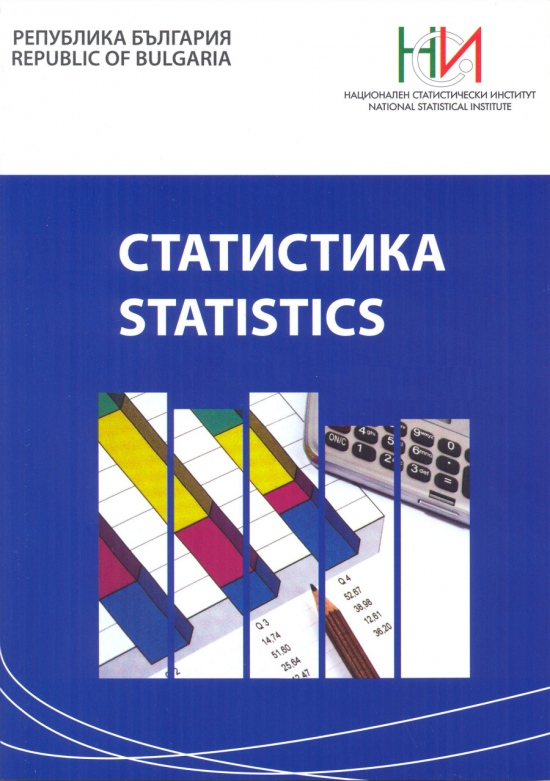
The section Theory and Methodology of statistical surveys incudes the article:
• Impact the big data (Big Data) on official statistics: opportunity or provocation - authors Dr. Bogdan Bogdanov, Deputy President of the National Statistical Institute, and Galya Stateva, National Statistical Institute, Sofia
This article is intended to familiarize the reader with the basic characteristics of big data (Big Data), their descriptive representation and the opportunities for their application in the production process of official statistics. The growth of information technology and data streams should be seen more as a need for comprehensive reform, not only as a necessity of extending the scope of official statistics. The emphasis is on the question: what should statistics be in the modern information society?
This article describes the connection between globalization and Big Data, which is essentially interdependent. The rapid development of information technology and the creation of massive flows of information predetermine the growth of the global economy. Conversely, the global economy cannot develop without information guiding in the required direction money, resources and manpower. The first attempt of SWOT analysis of big data that briefly summarizes the main conclusions regarding the possibilities for their use has been made.
The information is currently being created constantly, spontaneously and in unstructured form. Turning it into relevant, useful, constructive and positive energy and form is the task of statisticians and IT experts in the XXI century.
The section Statistical surveys and analysis includes the articles:
• Need for improvement and effective use of innovative activity in the activities of statisticians - author Prof. Dr. e.s. Ivanka Saykova, University of National and World Economy - Sofia
This article discusses how to increase the innovative capacity of statisticians understood as improved skills to find ideas, justification and implementation of useful innovations in their activities. The main factors that favour the birth of beneficial innovations as well as the barriers faced by innovators are being discussed. Formulated are ideas and specific proposals aimed at solving this current task.
• Human development index - Methodological and applied aspects - author Prof. Dr. Polya Angelova, Economic Academy ‘D. Tzenov’ - Svishtov
Human Development Index (HDI) is one of the main indicators for assessment of social development, which is used worldwide in the last 25 years. Statistical analysis and international comparisons carried out based on HDI and its individual components provide the opportunity to establish the place of the State according to the level of development, to analyse changes in the economy and social and regional disparities in living conditions.
The article is devoted to methodological concepts of HDI and the possibilities for its application as a benchmark for assessing the human potential. Human Development Index combines the three basic components of human development - longevity, education and income, and is calculated on the basis of statistical data on the main socio-economic and demographic processes in different countries. These components are characterized by basic parameters specified for all countries according to a comparable methodology that provides the necessary information base for international and regional comparisons.
In chronological sequence the article presents the methodological changes in the HDI, and common elements and the differences that have occurred after 2010 are derived. Conducted is a comparative empirical analysis of the state and regional differences, according to the Human Development Index and its components between the European Union (15) and the newly accessed countries from Central and Eastern Europe (CEE) based on data from official statistical publications and annual reports on human development for the period 2007 - 2015.
• Popular misconceptions in verification of Statistical assumptions - author Assoc. Prof. Margarita Lambova, University of Economics - Varna
Presented are arguments concerning the interpretation of the results from statistical tests. discussed are certain issues of the decision-making on the acceptance or rejection of a particular assumption, the emphasis being on the logic of the so-called p-value on the one hand, and on the other the computability of the certainty with which a particular hypothesis is accepted.
In accordance with the set research objective are revealed the main misconceptions with regard to the p-value assigned as a decision-making indicator in the statistical software, as well as with regard to the probability of the accepted hypothesis being true or false.
• Beyond GDP - author Valentin Chavdarov, National Statistical Institute - Sofia
The article examines the shortcomings of GDP as a summary measure of economic activity. Some of the shortcomings of GDP are due to lax financial regulations as well as the globalization of the economy. The loosening of regulations since the Great Depression and the activities of multinational companies with a goal to minimize the due taxes distort the economic reality and statistical data that reflect this reality.
The article reflects the author's opinion and does not commit the National Statistical Institute.
The section Information, reviews, consultations presents information about:
• The labour market and poverty in Bulgaria - again criticized by the European Commission - author Dr. Lyuben Tomov, Institute for Social and Trade Union Research CITUB (ISTR) - Sofia
The analysis is a critical commentary on the findings of the European Commission (EC) related to sections of the labour market, poverty and social exclusion from the Report on Bulgaria for 2016, including a thorough review regarding the prevention and correction of macroeconomic imbalances.
The analysis is focused on: the huge demographic pressure as a fundamental challenge to the labor market; the argument of the European Commission for ‘threatening the competitiveness rapid growth in real wages’; the issue with the lack of clear criteria and mechanism for determining the minimum wage and ‘its compressing effect’ on wages from the upper ranges; further deterioration in the indicators for income inequality and the low efficiency of the social assistance system. The regressive trend of the overall tax and social security burden in the income range above the maximum insurable earnings is shown as an additional aggravating factor in this direction.
Copyright © 2026 NSI All rights reserved